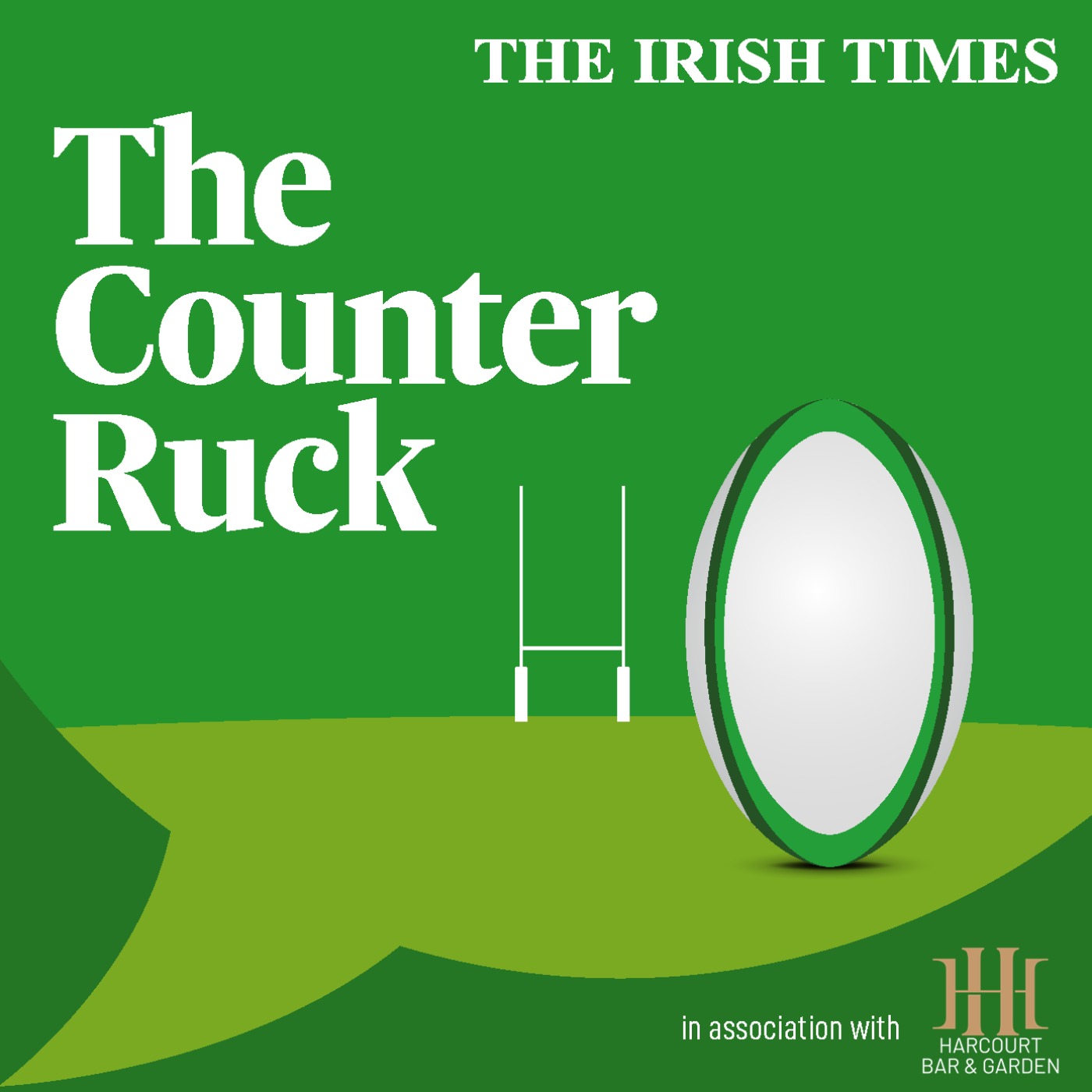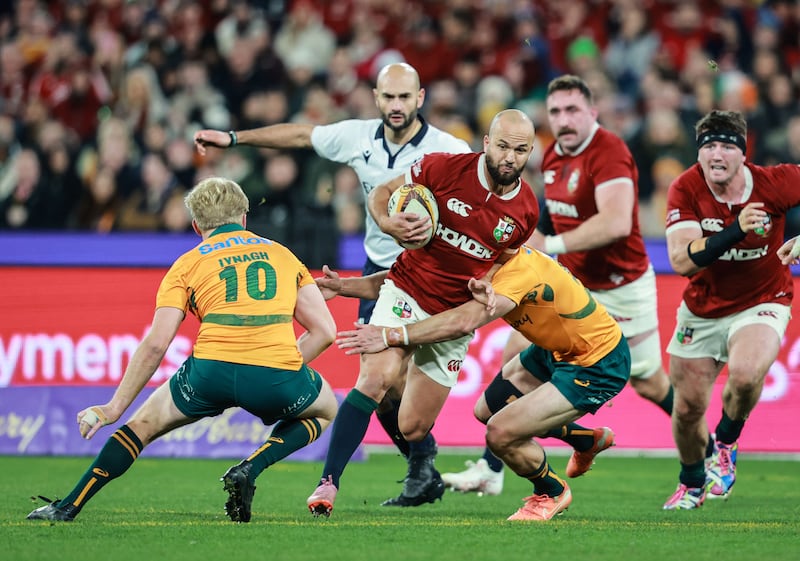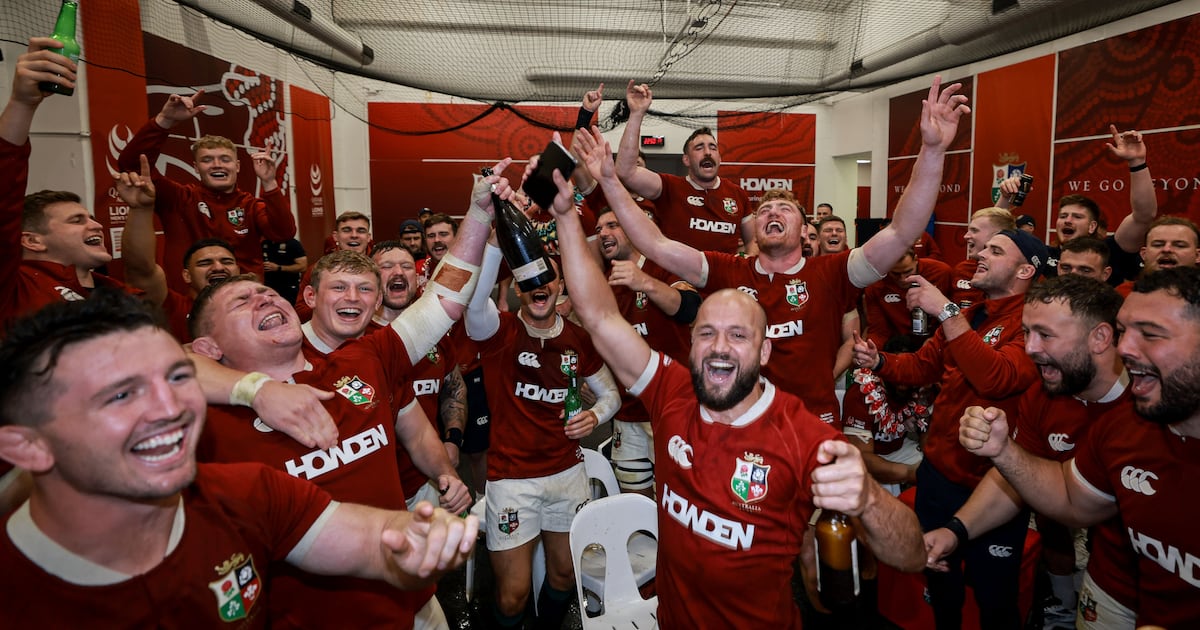There are moments in life and sport when you want to wring every last drop out of an occasion, aware that it is a feeling that might not be replicated again and therefore should be cherished for all its worth.
One such snapshot in time was at Twickenham following a fiercely contested win over England. The ice baths had long ceased to pinch the breath, the water more temperate and for a while no one moved. We just wanted to stay in that space, untouched by the outside world.
We would always have Paris, too, winning the Six Nations there. A few of the lads were stuck in doping control, which bought the rest of us an unexpected hiatus – time to sit, reflect and savour what we had done, before the real world came crashing back into our lives.
You could see that same desire to freeze a moment in time written all over the Lions players’ faces in Melbourne as Hugo Keenan glided over the try line to seal a series win. Finn Russell’s conversion attempt was an irrelevance.
The final whistle was the cue to release a torrent of emotion as the players came together to celebrate, bound up in the struggle and the shared sacrifice. You don’t get many of those moments in a career.
 Thrilling second Test saves Lions tour from ignominy
Thrilling second Test saves Lions tour from ignominy The arguments will continue to rage about the quality of the matches on this tour. That’s a fair debate but history doesn’t care much for the context; it records outcomes. These men have joined an elite club. They are British and Irish Lions with a series win in the southern hemisphere. That carries weight.
Australia, for their part, finally delivered a performance that represented some of their qualities as individuals and as a team. It wasn’t enough to win the match, but it did salvage some pride, and arguably the series as a whole.
“Ruck-gate” has dominated the headlines in the aftermath. Opinions are a dime a dozen on both sides of the argument, whether a pundit, fan or former player. The truth is the game was not decided by a single moment.

Australia’s Will Skelton of Australia (right) attempts to get past Ollie Chessum of the Lions during the second test. Photograph: David Davies/PA Wire
What cost Australia the win was their inability to create meaningful chances in the second half. They came away with just three points after the break, a solitary Tom Lynagh penalty that wasn’t enough to see them over the line.
A familiar name for all Leinster fans, Will Skelton led from the front for the Wallabies, demonstrating how much he was missed in that first Test. With Rob Valetini as a sidekick, they battered the Lions’ defensive line and created chances for teammates. Skelton drew in multiple defenders and forced the Lions to contest every ruck. The pair created chaos in the tight channels.
A rugby truism is that the team that wins the gainline wins games. For all our attempts to complicate things, that basic truth never changes. You either break the line by force or finesse. And for 30 minutes, Australia did both.
They used tip-on passes, back-to-back carries, and targeted the Lions’ biggest players and drew them into collision. They got quick ball and, in doing so, slowed the Lions’ ability to set defensively. That’s the virtuous circle of rugby – win the collision, win the ruck, win the next phase.
In the wide channels, Australia looked slick. Scrumhalf Jake Gordon, who had a fine game, kept changing the point of attack and mostly did it off front-foot ball. That’s when the Wallabies were at their most dangerous.
The try that stood out came from a breathtaking counterattack. It was the first real glimpse we got of Joseph-Aukuso Suaalii with space and ball in hand. And what a sight it was. He’s still new to rugby union, but there’s no mistaking his talent. He’s not a Sonny Bill Williams clone. Sure, he has the size, but it’s his balance, footwork and feel for the game that stood out.
When he tore the Lions open to set up Tom Wright’s try, it felt like a turning point. I thought, “this is it”. The Lions were rattled. Australia were ahead on the scoreboard and playing with ambition. That was the moment to push on and kill the game. But it never came.
Instead, they let the Lions back in, conceding two tries in quick succession before half-time. And then, like steam escaping a valve, the momentum was gone.

The Lions’ Jamison Gibson-Park makes a break for it against Australia. Photograph: Dan Sheridan/Inpho
Valetini didn’t reappear for the second half. Skelton was effectively done after 30 minutes despite staying on for 47, having emptied the tank. When you build a game plan around two forwards, even world-class ones, you’re living dangerously.
The 6-2 bench split suggests the plan was to batter the Lions up front. But when the game shifted to the edges, Australia didn’t adapt. That’s the part that stood out most for me. The lack of in-game management.
From about the 32nd minute onwards, Australia stopped trying to win the match and started trying not to lose it. You could feel it in the way they played. Their energy dipped, their ambition narrowed. And slowly, the Lions reeled them in.
The Lions themselves were far from flawless. They weren’t dominant and this was no vintage performance. But in the big moments, their key players showed up. Russell was relatively quiet by his standards, but when he influenced the game, it mattered.
Jamison Gibson-Park grew into the contest too. The build-up to Tom Curry’s try, for example, came straight from the improvisational part of JGP’s brain. That’s not on a play sheet. That’s instinct, trust and clarity under pressure. It was also the moment the Lions took control and Australia never quite recovered.
The win keeps the quest for a series shutout alive and the potential to create another storied chapter in Lions history. But it also leaves plenty of questions about where Australian rugby is really at. You can’t rely on two players to carry your entire team, not against this level of opposition. And when the game flips, when your power game fades, you need leaders who can see the shift, sense the opportunity and pivot accordingly.
In the end, it was the Lions who had those players who made the difference. They did so in flashes and it was nothing sustained, nor was it polished. But it was enough. And sometimes in rugby, as in life, enough really is enough. Australia had their moment, and they let it slip. The Lions took theirs and closed the door.
